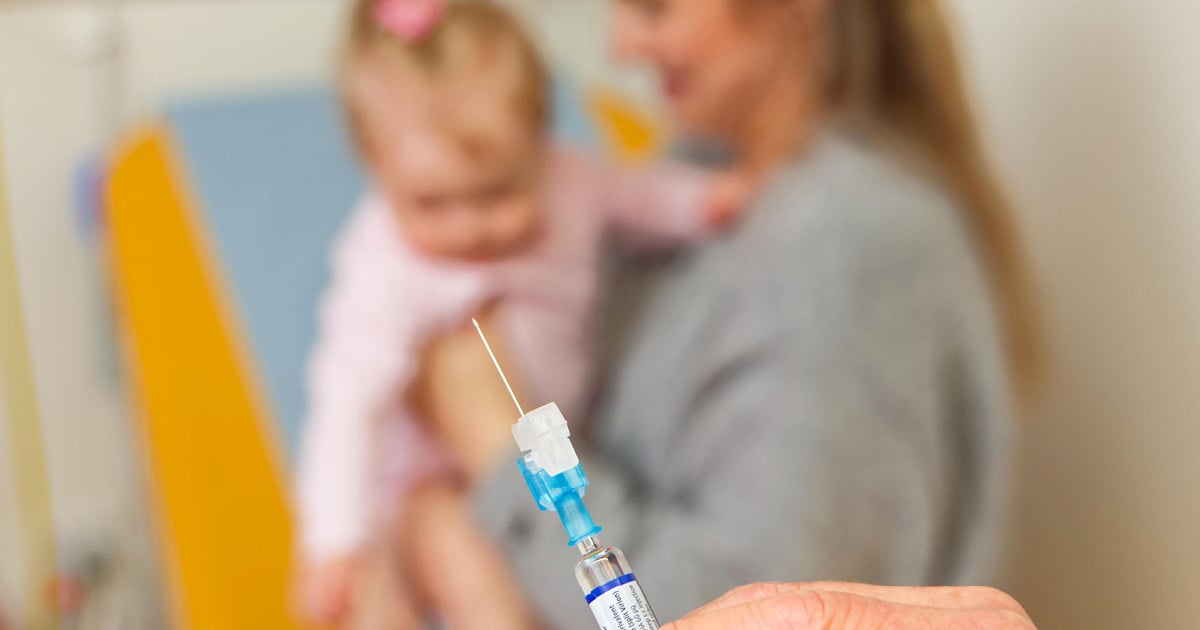As a leading research site in Australia, the Wesfarmers Centre of Vaccines and Infectious Diseases played an instrumental role in the global effort to develop a world-first RSV immunisation for young babies.
In two game-changing clinical trials, the Centre’s Vaccine Trials Group – headed by paediatrician and immunologist Professor Peter Richmond – investigated the long-acting antibody Nirsevimab in pre-term and full-term babies.
Nirsevimab was found to be 80 per cent effective at reducing RSV-related hospitalisations – a massive feat in the field of RSV prevention.
“This trial was, quite frankly, one of the most impactful results I have witnessed in the RSV prevention space,” Professor Richmond said.
The trial’s success led to the long-acting antibody treatment being licensed and rolled-out in Europe and North America, with Professor Richmond’s influence pivotal for Nirsevimab’s programs in Australia.
Findings from these trials guided the national-first $11 million RSV immunisation program, announced by the Western Australian Government in early 2024 – a program drastically reducing RSV- related hospitalisations in the State.
Since April 2024, eligible babies and select at-risk children have been offered the antibody treatment, giving babies and children five months protection over winter – the season when RSV hits hard.
“Figures from the WA Department of Health show 80 per cent of all babies born since the program began have received Nirsevimab, and we’re seeing significantly reduced RSV-related hospitalisations in young babies so far this winter,” Professor Richmond said.
“Hospitalisations for babies aged under eight months are down by 30 per cent, while admissions for babies under two months are almost 50 per cent lower.
This is a remarkable outcome – not only bringing a lot of relief for families, but also significant health care savings with decreased public health pressure on our hospitals.
As part of a two-pronged approach in the fight against RSV, the Centre’s researchers have also spent many years participating in global studies to develop a maternal vaccine given in pregnancy.
Their research efforts culminated in a final study involving women from 18 different countries around the world, which uncovered that a vaccine given between 24 and 36 weeks of pregnancy was safe and effective – giving babies protection against RSV for up to 180 days after birth.
This world-first maternal RSV vaccine – almost 25 years in the making – was given the green light by the Australian Technical Advisory Group on Immunisation (ATAGI) in June 2024.
“I am extremely pleased to share that our research has translated into the successful licensing of a maternal RSV vaccine recommended for all pregnant women in Australia,” Professor Richmond said.
In the space of just months we have gone from zero protection against RSV to a maternal vaccine and immunisation program covering both pregnant mothers and young babies against this potentially deadly virus – a tremendous achievement by all involved.
“In addition, our findings suggest that we will now see a reduction in other RSV-related problems that often arise following an infection, such as ear infections and bacterial pneumonias.
“The maternal RSV vaccine and immunisations may also help decrease antibiotic use, reducing the effects of antibiotic resistance – a serious threat facing the world right now.”
In the next decade, Professor Richmond hopes to see a variety of preventative immunisations and RSV vaccines licensed and available for Australian children and adults – but also the rest of the world.
Did you know?
- Nirsevimab can reduce RSV hospitalisations by 80% up to 180 days post immunisation
- RSV causes 100,000 deaths globally every year
- There are 3.6 million RSV hospitalisations globally every year
- RSV is the main cause of acute respiratory infections/pneumonia in children
- Rates of RSV hospitalisation are more than double in Aboriginal babies than non-Aboriginal babies
- RSV hospitalisations 8x greater than influenza in children under 5
- 650 – 800 RSV hospitalisations in Western Australia every year
- 1 in 30 hospitalised for RSV in WA
- Within NICU, risk of hospitalisation with an acute respiratory infection is 6.5 times higher in pre-term babies and 5 times higher in babies with chronic lung disease, than those without
- 89.6% of parents are aware of RSV, but only 64% associated pneumonia with RSV *from a sample
- 78.7% future parents are aware of RSV, but only 50% associated pneumonia with RSV *from a sample
- 252,287 health records examined to determine if age at time of RSV hospitalisation could predict future asthma risk

